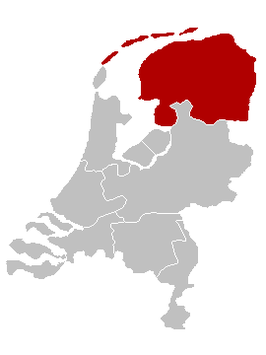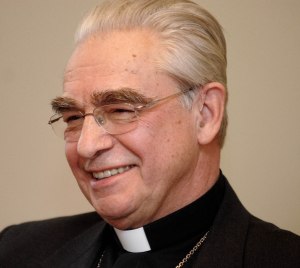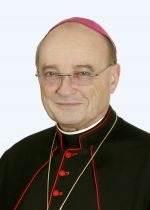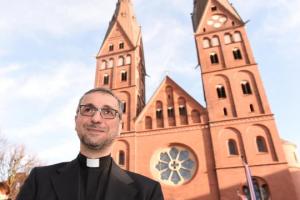 In the time during and following Pentecost, the dioceses in Northwestern Europe generally get new priests, as seminarians are ordained during this time in which the Church remembers and celebrates the Holy Spirit’s descent upon the Apostles and His continuing work in the Church today.
In the time during and following Pentecost, the dioceses in Northwestern Europe generally get new priests, as seminarians are ordained during this time in which the Church remembers and celebrates the Holy Spirit’s descent upon the Apostles and His continuing work in the Church today.
The ordinations are spread out across the entire month of June, with the first batch having taken place last weekend. On 6 June, Bishop Franz-Josef Overbeck ordained Fathers Marius Schmitz (30) and Christoph Werecki (28) for the Diocese of Essen, and on Sunday the 7th the vast majority followed, with 5 new priests in Aachen, 4 in Berlin, 1 in Dresden-Meiβen, 1 in Erfurt, 3 in Hamburg, 2 in Münster, 2 in Osnabrück, 5 in Paderborn and also 5 in Würzburg. Additionally, 6 transitional deacons were ordained in München und Freising, as well as 2 permanent deacons in Trier.
On Monday the 9th, the first of a number of ordinations in the Netherlands took place, of Father Ton Jongstra in ‘s Hertogenbosch. He was ordained for the Focolare movement. On Saturday, 14 June, 2 new priests will be ordained for Haarlem-Amsterdam and 1 for Roermond. On the same day, in Würzburg, two Franciscan priests will be ordained. On 21 June, one priest will be ordained for Utrecht.
Lastly, on the 22nd, 2 new priests will be ordained for Mechelen-Brussels, one transitional deacon for Bruges on the 25th, and a final new priest for Ghent on the 29th
All in all, we’re looking at 41 new priests, 7 transitional deacons and 2 permanent deacons in the dioceses of Germany, the Netherlands and Belgium. The youngest priest is 25-year-old Fr. Johannes van Voorst tot Voorst, to be ordained for the Diocese of Haarlem-Amsterdam; most senior is 63-year-old Fr. Joost Baneke, Archdiocese of Utrecht. The average age is 33 for the priests and 34 for the deacons.
Most new priests and deacons come from the dioceses for which they are ordained, but some have come from abroad. Fr. Alberto Gatto (Berlin) comes from Italy, Fr. Przemyslaw Kostorz (Dresdem-Meiβen) from Poland, Fr. Mario Agius (Haarlem-Amsterdam) from Malta, Fr. Jules Lawson (Hamburg) from Togo, Fr. Jiji Vattapparambil (Münster) from India, and Fr. Alejandro Vergara Herrera (Roermond) from Chile.
Below an overview of names, dates and the like of the latest influx of men who will administer that most necessary of services to the faithful: the sacrament of the Eucharist.
6 June:
Diocese of Essen: Bishop Franz-Josef Overbeck ordains Fathers Marius Schmitz (30) and Christoph Werecki (28).
7 June:
Diocese of Aachen: Bishop Heinrich Mussinghoff ordains Fathers Matthias Goldammer (27), David Grüntjens (26), Achim Köhler (40), Michael Marx (30) and Andreas Züll (38).
Archdiocese of Berlin: Rainer Maria Cardinal Woelki ordains Fathers Alberto Gatto (40), Bernhard Holl (33), Johannes Rödiger (33) and Raphael Weichlein (31).
Diocese of Dresden- Meiβen: Bishop Heiner Koch ordains Father Przemyslaw Kostorz (27).
Diocese of Erfurt: Bishop Reinhard Hauke ordains Father Andreas Kruse (44).
Diocese of Fulda: Bishop Heinz Josef Algermissen ordains Father Markus Agricola.

^Archdiocese of Hamburg: Bishop Hans-Jochen Jaschke ordains Fathers Heiko Kiehn (33), Roland Keiss (29) and Jules Lawson (47).
Archdiocese of München und Freising: Reinhard Cardinal Marx ordains transitional Deacons Alois Emslander (29), Johannes Kappauf (28), Manuel Kleinhans (30), Michael Maurer (28), Martin Reichert (26) and Simon Ruderer (30).
Diocese of Münster: Bishop Felix Genn ordains Fathers Jiji Vattapparambil (35) and Thomas Berger (38).
Diocese of Osnabrück: Bishop Franz-Josef Bode ordains Fathers Hermann Prinz (44) and Kruse Thevarajah (29).
Archdiocese of Paderborn: Archbishop Hans-Josef Becker ordains Fathers Christof Graf (28), Markus Hanke (41), Stefan Kendzorra (29), Tobias Kiene (28) and Raphael Steden (26).
Diocese of Trier: Bishop Stephan Ackermann ordains permanent Deacons Hans Georg Bach (59) and Michael Kremer (51).
Diocese of Würzburg: Bishop Friedhelm Hofmann ordains Fathers Andreas Hartung (31), Sebastian Krems (38), Paul Reder (42), Michael Schmitt (31) and Simon Schrott (29).
9 June:
Diocese of ‘s Hertogenbosch/Focolare movement: Bishop Jan van Burgsteden ordains Father Ton Jongstra (56).
14 June:
Diocese of Haarlem-Amsterdam: Bishop Jan Hendriks ordains Fathers Johannes van Voorst tot Voorst (25) and Mario Agius (31).
Diocese of Roermond: Bishop Frans Wiertz ordains Father Alejandro Vergara Herrera (34).
Diocese of Würzburg/ Franciscans: Bishop Firedhelm Hoffman ordains Fathers Martin Koch (33) and Konrad Schlattmann (28).
21 June:
Archdiocese of Utrecht: Wim Cardinal Eijk ordains Father Joost Baneke (63).
22 June:
Archdiocese of Mechelen-Brussels: Archbishop André-Joseph Léonard ordains Fathers Gaëtan Parein (37) and Denis Broers (54).
25 June:
Diocese of Bruges: Bishop Jozef De Kesel ordains transitional Deacon Matthias Noë (24).
29 June:
Diocese of Ghent: Bishop Luc Van Looy ordains Father Herbert Vandersmissen (32).
Photo credit: [1] ordinations in Aachen, Andreas Steindl, [2] new priests of Hamburg, K. Erbe
 Bishop-elect Horst Eberlein was born in 1950 in Walsleben (Altmark) and ordained to the priesthood in 1977. He was a priest in parishes in what was then the Apostolic Administration of Schwerin, which in 1994 became a part of the newly erected Archdiocese of Hamburg. He is then the first bishop to be appointed from among the clergy of Hamburg itself. His predecessors as auxiliary bishops came from Schwerin (Norbert Werbs) and Osnabrück (Hans-Jochen Jaschke), and the archbishops were also called from other circumscriptions. Archbishop Heße, for example, came from Cologne.
Bishop-elect Horst Eberlein was born in 1950 in Walsleben (Altmark) and ordained to the priesthood in 1977. He was a priest in parishes in what was then the Apostolic Administration of Schwerin, which in 1994 became a part of the newly erected Archdiocese of Hamburg. He is then the first bishop to be appointed from among the clergy of Hamburg itself. His predecessors as auxiliary bishops came from Schwerin (Norbert Werbs) and Osnabrück (Hans-Jochen Jaschke), and the archbishops were also called from other circumscriptions. Archbishop Heße, for example, came from Cologne. There have been years when the changes were rather significant, but 2017 does not look to be one of those. At the start of the new year, three dioceses are without a bishop: Groningen-Leeuwarden in the Netherlands (map at right), Mainz in Germany and the Territorial Prelature of Trondheim in Norway. It is a safe bet that the first two will receive their new bishops in 2017, but Trondheim may well be left as it has been for the past seven years: without a bishop, and with the bishop of Oslo serving as Apostolic Administrator. But on the other hand, for a see that just built and consecrated its new cathedral, and which, like the rest of Norway, has seen a significant increase in Catholic faithful, this does not seem like a situation that will continue forever. So who knows what the year will bring.
There have been years when the changes were rather significant, but 2017 does not look to be one of those. At the start of the new year, three dioceses are without a bishop: Groningen-Leeuwarden in the Netherlands (map at right), Mainz in Germany and the Territorial Prelature of Trondheim in Norway. It is a safe bet that the first two will receive their new bishops in 2017, but Trondheim may well be left as it has been for the past seven years: without a bishop, and with the bishop of Oslo serving as Apostolic Administrator. But on the other hand, for a see that just built and consecrated its new cathedral, and which, like the rest of Norway, has seen a significant increase in Catholic faithful, this does not seem like a situation that will continue forever. So who knows what the year will bring. There are a few bishops who will reach the age of 75 in 2017, and thus will offer their resignation. In Germany, these are Bishop Friedhelm Hofmann of Würzburg on 12 May and Norbert Trelle (at left) of Hildesheim on 5 September. Joining them is Bishop Frans Wiertz of Roermond in the Netherlands. He will be 75 on 2 December, but I would not be surprised if his retirement will be accepted earlier, as the bishop has been struggling with eye-related health problems.
There are a few bishops who will reach the age of 75 in 2017, and thus will offer their resignation. In Germany, these are Bishop Friedhelm Hofmann of Würzburg on 12 May and Norbert Trelle (at left) of Hildesheim on 5 September. Joining them is Bishop Frans Wiertz of Roermond in the Netherlands. He will be 75 on 2 December, but I would not be surprised if his retirement will be accepted earlier, as the bishop has been struggling with eye-related health problems. In Rome, lastly, there will be no new consistory. Only four cardinals will reach the age of 80 and so cease to be electors. They are Audrys Backis, Archbishop emeritus of Vilnius, Lithuania (and former Nuncio to the Netherlands) (at right); Raymundo Damasceno Assis, Archbishop emeritus of Aparecida, Brazil; Attilio Nicora, Pontifical Legate to the Basilicas in Assisi, Italy; and Lluís Martínez Sistach, Archbishop emeritus of Barcelona, Spain. The number of cardinals who will be able to participate in a conclave will still be 116 at the end of next year, so there will be no need to bring their numbers up.
In Rome, lastly, there will be no new consistory. Only four cardinals will reach the age of 80 and so cease to be electors. They are Audrys Backis, Archbishop emeritus of Vilnius, Lithuania (and former Nuncio to the Netherlands) (at right); Raymundo Damasceno Assis, Archbishop emeritus of Aparecida, Brazil; Attilio Nicora, Pontifical Legate to the Basilicas in Assisi, Italy; and Lluís Martínez Sistach, Archbishop emeritus of Barcelona, Spain. The number of cardinals who will be able to participate in a conclave will still be 116 at the end of next year, so there will be no need to bring their numbers up. In the Archdiocese of Hamburg the tradition is about to change. Hamburg is perhaps a little too young to have very old traditions, but this goes a bit further back than the archdiocese. Established in 1994, the archdiocese was given two auxiliary bishops, one residing in Hamburg, the other in Schwerin. And in Schwerin, the tradition of having a resident auxiliary bishop goes back another 40 years, to 1973, when the area, then still part of the Diocese of Osnabrück, was made a nominally separate Apostolic Administration. This because of the political situation at the time: the new Administration was that part of Osnabrück which lay in the communist German Democratic Republic, divided from the rest of the diocese by the iron curtain. As this border between west and east prevented easy travel by the bishop from Osnabrück to the faithful in Mecklenburg and Vorpommern, the Holy See appointed an auxiliary bishop to reside in Schwerin, who could be a bishop for the faithful there when the ordinary could not. After the German reunification, major parts of Osnabrück, including Schwerin, were split off to become the new Archdiocese of Hamburg, but the auxiliary bishop in Schwerin remained, now as an auxiliary bishop of Hamburg. Since 1981, that has been Bishop Norbert Werbs, who
In the Archdiocese of Hamburg the tradition is about to change. Hamburg is perhaps a little too young to have very old traditions, but this goes a bit further back than the archdiocese. Established in 1994, the archdiocese was given two auxiliary bishops, one residing in Hamburg, the other in Schwerin. And in Schwerin, the tradition of having a resident auxiliary bishop goes back another 40 years, to 1973, when the area, then still part of the Diocese of Osnabrück, was made a nominally separate Apostolic Administration. This because of the political situation at the time: the new Administration was that part of Osnabrück which lay in the communist German Democratic Republic, divided from the rest of the diocese by the iron curtain. As this border between west and east prevented easy travel by the bishop from Osnabrück to the faithful in Mecklenburg and Vorpommern, the Holy See appointed an auxiliary bishop to reside in Schwerin, who could be a bishop for the faithful there when the ordinary could not. After the German reunification, major parts of Osnabrück, including Schwerin, were split off to become the new Archdiocese of Hamburg, but the auxiliary bishop in Schwerin remained, now as an auxiliary bishop of Hamburg. Since 1981, that has been Bishop Norbert Werbs, who  A spokesman of the archdiocese
A spokesman of the archdiocese  In the Netherlands, to begin with, a new bishop will arrive in the Diocese of ‘s-Hertogenbosch. Bishop Antoon Hurkmans (right) has already has his resignation on health grounds accepted and it shouldn’t take more than a few more months for his successor in the country’s largest diocese (in numbers at least) to be named. Will it be current Auxiliary Bishop Rob Mutsaerts? Who’s to say.
In the Netherlands, to begin with, a new bishop will arrive in the Diocese of ‘s-Hertogenbosch. Bishop Antoon Hurkmans (right) has already has his resignation on health grounds accepted and it shouldn’t take more than a few more months for his successor in the country’s largest diocese (in numbers at least) to be named. Will it be current Auxiliary Bishop Rob Mutsaerts? Who’s to say. In Germany, three prelates are expected to retire this year. First of all the long-serving Bishop of Mainz, Cardinal Karl Lehmann (left), who will reach the age of 80 in May. Losing his voting rights in the conclave and his memberships in the Curia, his retirement is expected to follow around the same time. The Diocese has already announced that Cardinal Lehmann will continue to live in his current home, while the former abode of Cardinal Volk, bishop of Mainz from 1962 to 1982. Cardinal Lehmann has headed Mainz since 1983.
In Germany, three prelates are expected to retire this year. First of all the long-serving Bishop of Mainz, Cardinal Karl Lehmann (left), who will reach the age of 80 in May. Losing his voting rights in the conclave and his memberships in the Curia, his retirement is expected to follow around the same time. The Diocese has already announced that Cardinal Lehmann will continue to live in his current home, while the former abode of Cardinal Volk, bishop of Mainz from 1962 to 1982. Cardinal Lehmann has headed Mainz since 1983. In Limburg we may finally expect the arrival of a new bishop. Administrator Bishop Manfred Grothe (right) will be 77 in April and has already retired as auxiliary bishop of Paderborn. In March, it will be two years since Bishop Tebartz-van Elst was made to retire, and according to Bishop Grothe, the time is just about ready for his successor to be named.
In Limburg we may finally expect the arrival of a new bishop. Administrator Bishop Manfred Grothe (right) will be 77 in April and has already retired as auxiliary bishop of Paderborn. In March, it will be two years since Bishop Tebartz-van Elst was made to retire, and according to Bishop Grothe, the time is just about ready for his successor to be named. In the Archdiocese of Hamburg, the last auxiliary bishop, Hans-Jochen Jaschke (left) will reach the age of 75 in September. This may mean that Archbishop Stefan Heße will be requesting one or more new auxiliary bishops from Rome, either this or next year.
In the Archdiocese of Hamburg, the last auxiliary bishop, Hans-Jochen Jaschke (left) will reach the age of 75 in September. This may mean that Archbishop Stefan Heße will be requesting one or more new auxiliary bishops from Rome, either this or next year. In Belgium then, Ghent’s Bishop Luc Van Looy (right) will turn 75 in September. The Salesian, who became president of Caritas Europe and was among Pope Francis’ personal choices to attend the Synod of Bishops last year, has been bishop of Ghent since 2003.
In Belgium then, Ghent’s Bishop Luc Van Looy (right) will turn 75 in September. The Salesian, who became president of Caritas Europe and was among Pope Francis’ personal choices to attend the Synod of Bishops last year, has been bishop of Ghent since 2003. In Rome, another Belgian bishop will reach the retirement age in April, Archbishop Frans Daneels (left), secretary of the Apostolic Signatura and a Norbertine priest, may return to Averbode Abbey in Belgium, where he made his profession in 1961.
In Rome, another Belgian bishop will reach the retirement age in April, Archbishop Frans Daneels (left), secretary of the Apostolic Signatura and a Norbertine priest, may return to Averbode Abbey in Belgium, where he made his profession in 1961.
 The consecration of the new archbishop of Hamburg, Msgr. Stefan Heße, on 14 March, turns out to have a few unique features, as the plans for the event emerge.
The consecration of the new archbishop of Hamburg, Msgr. Stefan Heße, on 14 March, turns out to have a few unique features, as the plans for the event emerge. There are two active prelates in Germany who are over the age of 75. One of them is Cardinal Karl Lehmann (pictured), the bishop of Mainz, who will turn 79 on 16 May. He may retire this year, but it is also entirely possible that he will stay on until his 80th birthday, much like Cardinal Meisner in Cologne. We can’t judge if there is any recent tradition of late retirements in Mainz, as five of Cardinal Lehmann’s six immediate predecessors died in office, well before retirement age. The only exception is Cardinal Hermann Volk, who retired on his 79th birthday in 1982.
There are two active prelates in Germany who are over the age of 75. One of them is Cardinal Karl Lehmann (pictured), the bishop of Mainz, who will turn 79 on 16 May. He may retire this year, but it is also entirely possible that he will stay on until his 80th birthday, much like Cardinal Meisner in Cologne. We can’t judge if there is any recent tradition of late retirements in Mainz, as five of Cardinal Lehmann’s six immediate predecessors died in office, well before retirement age. The only exception is Cardinal Hermann Volk, who retired on his 79th birthday in 1982. Two other German bishops will reach the age of 75 this year, and thus tender their resignation. Bishop Norbert Werbs (at right), auxiliary bishop of Hamburg, will reach the retirement age on 20 May, and Bishop Heinrich Mussinghoff of Aachen will do so on 29 October. For Hamburg, the retirement of Bishop Werbs will be the second step in the full changeover of the archdiocese’s bishops. Archbishop Thissen already retired last year, and the last auxiliary bishop, Hans-Jochen Jaschke, will follow late next year. A new archbishop and one or more new auxiliaries appear to be on the books this year.
Two other German bishops will reach the age of 75 this year, and thus tender their resignation. Bishop Norbert Werbs (at right), auxiliary bishop of Hamburg, will reach the retirement age on 20 May, and Bishop Heinrich Mussinghoff of Aachen will do so on 29 October. For Hamburg, the retirement of Bishop Werbs will be the second step in the full changeover of the archdiocese’s bishops. Archbishop Thissen already retired last year, and the last auxiliary bishop, Hans-Jochen Jaschke, will follow late next year. A new archbishop and one or more new auxiliaries appear to be on the books this year. Who will succeed Archbishop Léonard is anyone’s guess, but if the tradition in Belgium is an indication, he will be from Flanders. Since 1832, the office of archbishop of Mechelen-Brussels has been alternately held by a Flemish and a Walloon prelate, and Archbishop Léonard hails from Namur. The bishops of Bruges, Ghent, Antwerp or Hasselt are possibilities, as are one of the three auxiliaries bishops of Mechelen-Brussels. If the successor already is a bishop, that is, and the whole idea of tradition may be ignored and another Walloon priest of bishop may be appointed. Whoever it will be, it will certainly be interesting.
Who will succeed Archbishop Léonard is anyone’s guess, but if the tradition in Belgium is an indication, he will be from Flanders. Since 1832, the office of archbishop of Mechelen-Brussels has been alternately held by a Flemish and a Walloon prelate, and Archbishop Léonard hails from Namur. The bishops of Bruges, Ghent, Antwerp or Hasselt are possibilities, as are one of the three auxiliaries bishops of Mechelen-Brussels. If the successor already is a bishop, that is, and the whole idea of tradition may be ignored and another Walloon priest of bishop may be appointed. Whoever it will be, it will certainly be interesting. In the time during and following Pentecost, the dioceses in Northwestern Europe generally get new priests, as seminarians are ordained during this time in which the Church remembers and celebrates the Holy Spirit’s descent upon the Apostles and His continuing work in the Church today.
In the time during and following Pentecost, the dioceses in Northwestern Europe generally get new priests, as seminarians are ordained during this time in which the Church remembers and celebrates the Holy Spirit’s descent upon the Apostles and His continuing work in the Church today.